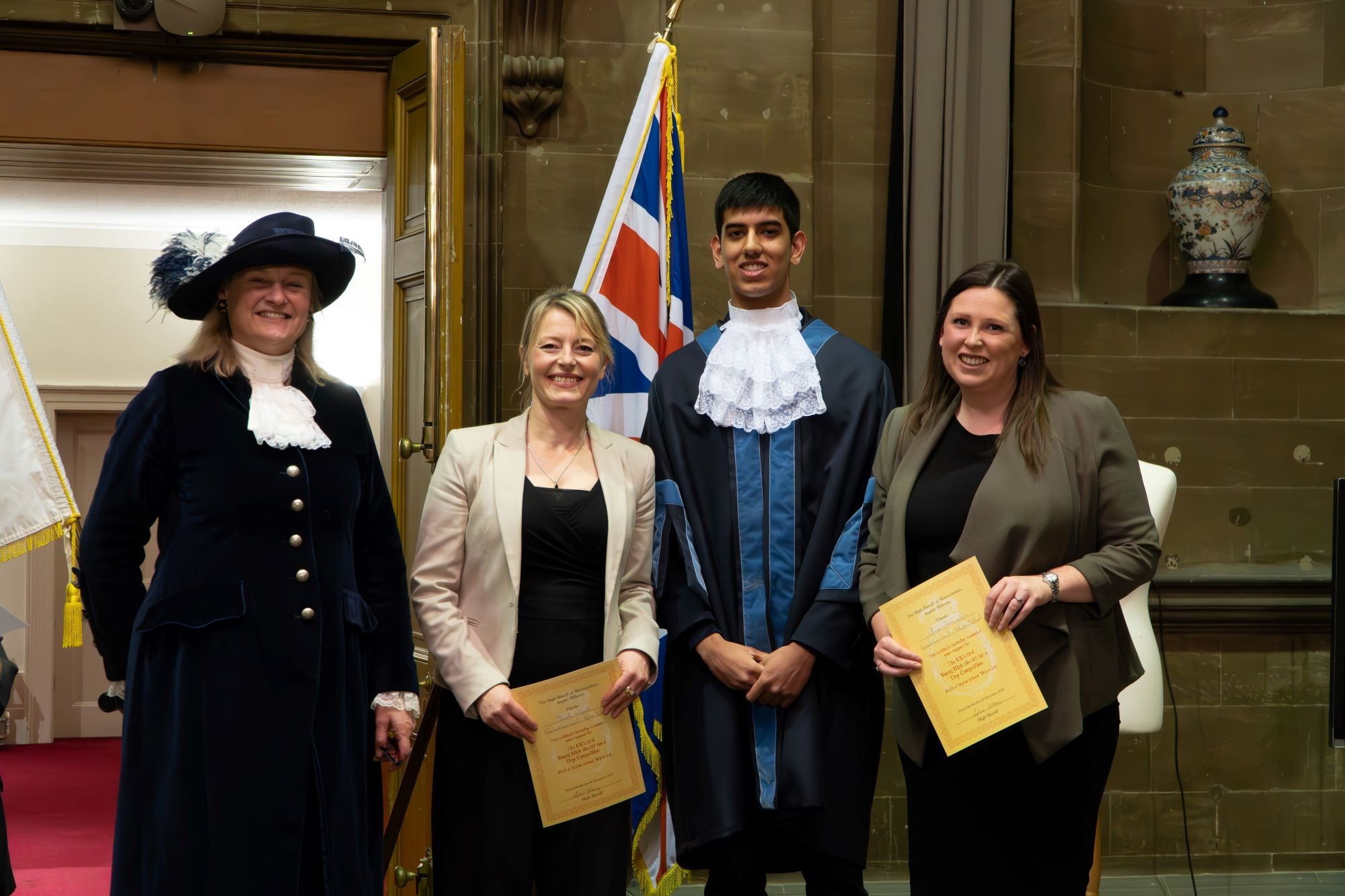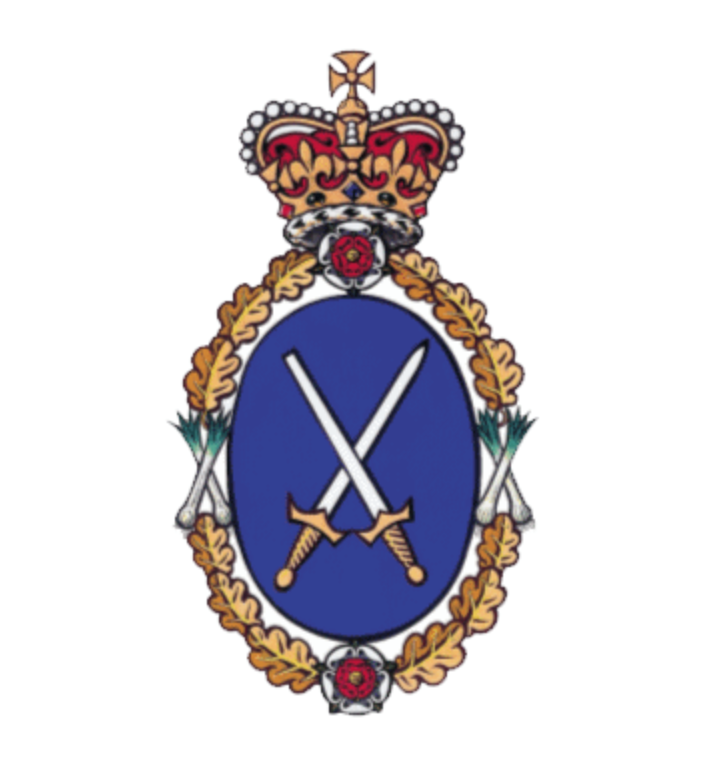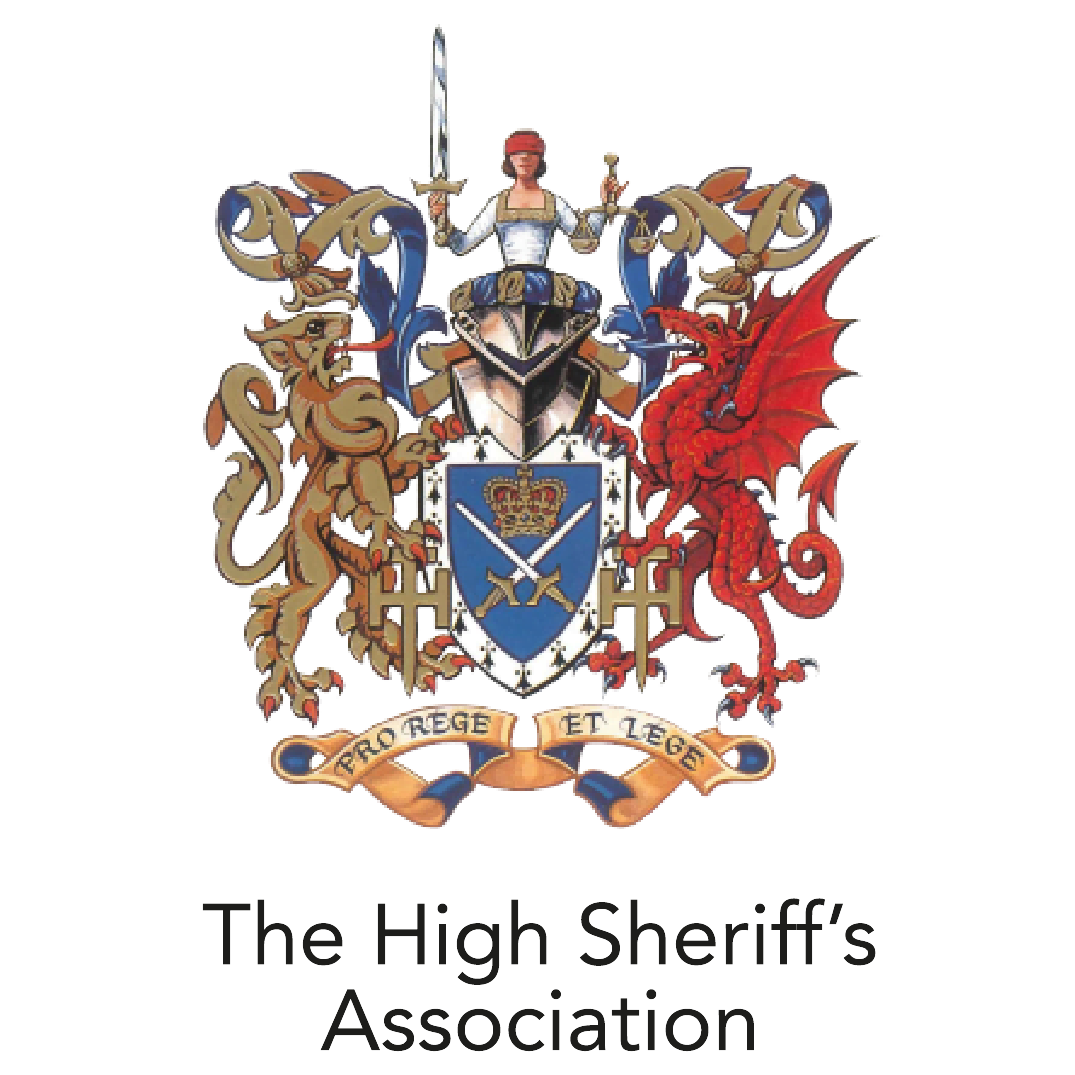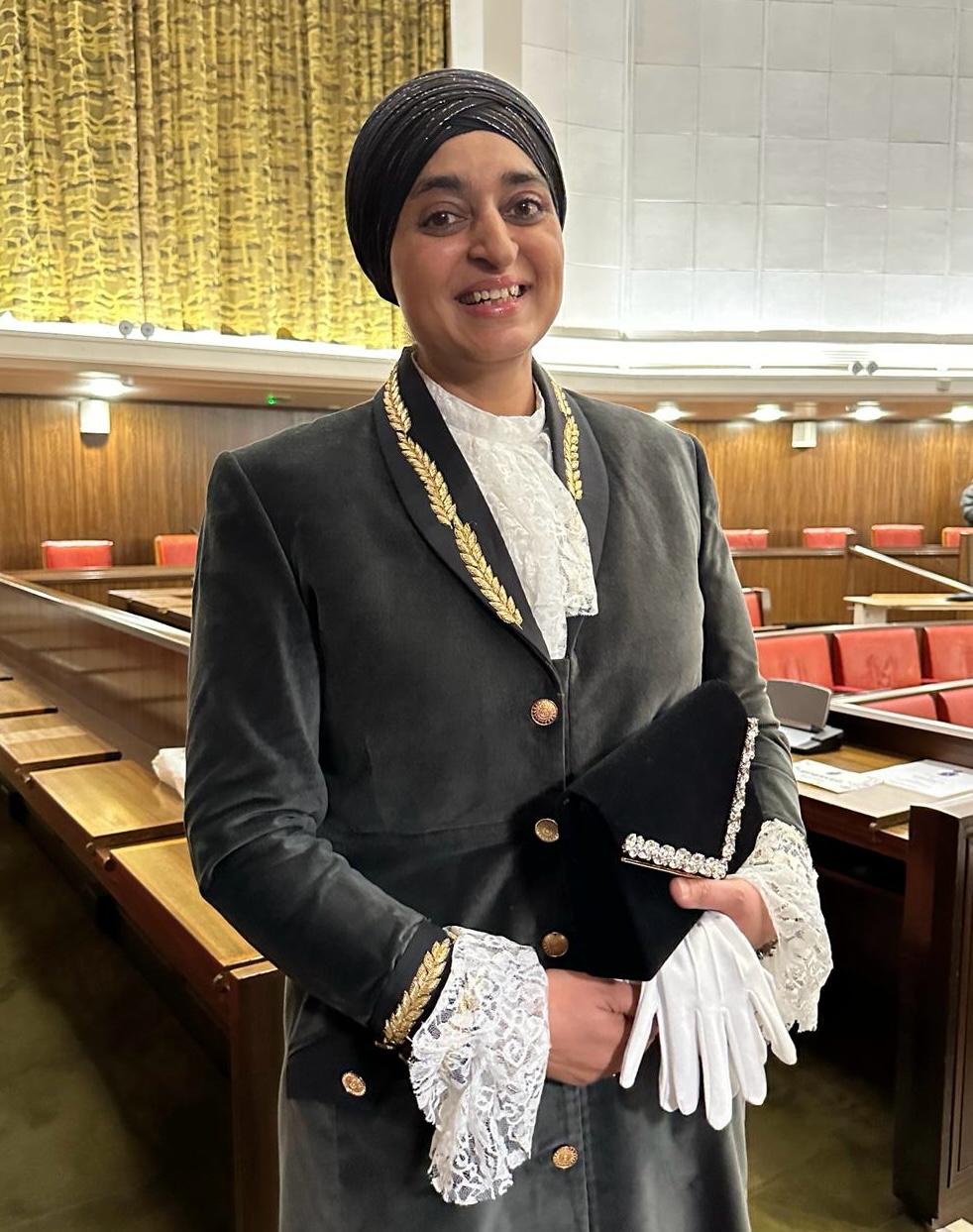2024 Young High Sheriff
Young High Sheriff for a Day Competition – Borough of Rugby 2024
Hosted by Rugby High School
The High Sheriff has offered the opportunity for one young person to become a young High Sheriff for the day. The successful candidate will have the opportunity to accompany the High Sheriff and help them undertake their tradition role and carry out their official duties on behalf of the King, for a day, (or part days). This is an opportunity to stand out and be a part of something unique.
The new Young High Sheriff has been appointed! Congratulations to Sophia Wilk in Year 13 at Rugby High School!
Crime Prevention Plans
After a full morning workshop, students involved in the Young High Sheriff for a Day competition have produced their outline Crime Prevention Plans. Now it is time to vote on these!
All students can now vote for the plan they wish to see pursued further and will be emailed a voting form. The deadline for voting is Thursday 19th December 2024.
Read the plans:
Team Davies
Team Greenwell
Team Hilleary
Team Kelham
Team Miesegaes
Team Samuda
Team Sawdon
Team Willoughby de Broke
Vote now for the Crime Prevention Plan you believe is most important!
The competition task was:
Produce a 3-minute video clip or write a 500-word essay, or 200-word poem on why you would want to be High Sheriff for the day.
Deadline for entry was: Monday 4th November 2024
Some of the features they were looking for are below, however, this was an open task and each piece went through a judging process. A small team of semi-professional judges judged all entries and put forward the top 25 to the High Sheriff’s community judging panel.
Last Year's Winner
Aaron Dhesi, pictured here in his formal Robe of Office, was last year's winner, Here is Aaron with last year's High Sheriff, Sophie Hilleary, and teachers from Myton School who led last year's competition, Jane Millington and Sarah Wyatt.

Aaron stated his motivation to become young High Sheriff came from his already extensive community service and voluntary work through the Kissing it Better Charity and was keen to use this opportunity to 'leave a positive mark on his community'.
Hosts of the Competition - Rugby High School
Mark Grady, Headteacher of Rugby High School said: "It is an honour and privilege to be hosting this prestigious competition for the students of Rugby.
The High Sheriff’s focus on using the traditional role to challenge modern issues is one we totally support here at RHS, and any chance that young people have to raise the issues they see affecting their lives with the High Sheriff, and by extension key roles and structures in our town, is absolutely vital.
I know the students at RHS are passionate about the communities in which they live, in having a strong, and informed voice in those communities, and I am sure the same is true of students across the borough. I look forward to hearing from those students that submit their entries."
Mark Grady
Headteacher, Rugby High School
Application process:
Please send your entry to highsheriffcomp@gmail.com
You will receive an acknowledgement of receipt. The competition opens on Monday 23rd September! Please submit your entry by Monday 4th November 2024.
Important: within the email, to accompany your entry please include:
- Your name.
- School, form teacher's name and email.
- Parent / guardian name and email
This information is important because:
- Any queries about your entry will be directed back to you via your form teacher.
- If you are selected as a competition finalist, you and your parents / guardians will be invited to the competition winners' event. At that time, your parents / guardians will be asked to complete a form providing consent to photography at the winners' event and to using your name and school in press and PR communications. If you are 18 or over at the time of the winners' event, you will be asked to provide this consent.
Written entries will be printed and circulated to the competition judges.
- Please ensure only your name is visible on your entry when printed.
- Your entry, (if written) should be printable on A4 paper. We advise you to run a test print of your entry, before submission, to ensure you are happy with the presentation when printed.
At the end of the competition, all personal data will be deleted. Your entry will be retained for PR purposes only.
Competition rules:
- The competition is open to Years 10-13 at all schools across the Borough of Rugby.
- Your competition entry must be original and all your own work.
- There is a 10% tolerance on word count and timing of video clips.
- All submissions must be submitted by email by Monday 4th November 2024 to:
highsheriffcomp@gmail.com - Any late entries will not be considered.
- Video clips should not include personal information, such as age, school or where you live.
- When filming video clips, students should not be in school, or wear uniform or have anything in the clip that identifies their school.
- Entries must not contain defamatory, obscene, offensive, or any other unsuitable material; the High Sheriff reserves the right to disqualify entries containing such matter. Entries must be suitable to be broadcast, published or used online by the High Sheriff, Rugby High School and the competition organiser for audiences of all ages. If the story has troubling content, the High Sheriff, Rugby High School and the competition organiser may, if required, take advice from the NSPCC, and may refer the troubling content to the relevant authorities.
- For safeguarding reasons, video clip filming must be undertaken in a public place.
- Winners entries may be shared via PR locally and potentially nationally and winners will be photographed for same purposes with the High Sheriff and judging panels.
- Judges’ decisions are final and judges will disregard any inappropriate submissions.
- Participants agree to take part in two or three facilitated workshops with other competition finalists to share ideas and develop a plan for a crime prevention initiative.
- Winners will be announced at the Young High Sheriff for a day Competition Winners Event on 4th December 2024.
Judging criteria:
|
Presentation |
|
|
Understanding |
|
|
Written structure |
|
|
Evidence of research |
|
|
SPAG |
|
Competition Timetable 2024:
|
Competition Launch |
23rd September |
|
Competition Entry Deadline |
4th November |
|
1st and 2nd round of judging completed |
15th November |
|
Winners’ Event |
4th December |
|
Crime reduction workshops completed. |
11th December |
Prizes:
- £250 cash prize for the Winner.
- A day, (or part days) spent with the High Sheriff to act in a support capacity and assist them in their formal duties on behalf of the King.
- A ceremonial robe to wear for the day.
- A Young High Sheriff for the day lapel badge to keep as a memento.
- £50 vouchers for two runners up.
Warwickshire High Sheriff 2024/25 – Rajvinder Kaur Gill
Visit the Warwickshire High Sheriff website
Please take a look at the High Sheriff’s priorities for her 2024/25 term of office. If you are lucky enough to be selected as a finalist in the competition, you will have the opportunity to develop and deliver a project to reduce crime:
The office of High Sheriff is one of only two royal appointments in the county and has been extant since Saxon times. Historically, the Sheriff was responsible for raising troops, collecting taxes and catching criminals, all of which powers have over time been taken on by others. It is now a non-political, voluntary appointment for one year, still representing Law and Order in the county with an increased role in promoting voluntary work in the community.
On Maundy Thursday, Rajvinder Kaur Gill became Warwickshire’s 690th High Sheriff and will serve the County for the 2024/25 Shrieval year. The ancient ceremony was held to transfer the title of High Sheriff from Sophie Hilleary in the former Courthouse at The Old Shire Hall in Warwick.
Speaking of her appointment to the office of High Sheriff, Raji said:
"It is a huge honour and a privilege to serve the people of Warwickshire. The day was made special as it was marked by the presence of friends, family, Warwickshire Police Cadets, Honourable Judges and Civic Guests.
“I am very keen to actively support and encourage in crime prevention projects in our county and support Crimebeat charity that gives recognition to innovative and successful crime prevention projects carried out by young people.”
“I extend my heartfelt appreciation to everyone whose support and trust has allowed me to undertake this esteemed position. A role of great importance to the County of Warwickshire and the Sikh Community as, after over 1000 years of history of the Office of High Sheriff, I am the first Sikh woman to take this ancient role in the UK.”
History of the office of High Sheriff
There have been High Sheriffs for at least 1,000 years. The original “Shire Reeves” were Royal officials appointed to enforce the King’s interests in a County, in particular the collection of revenues and the enforcement of law and order.
High Sheriffs had extensive powers. They judged cases in monthly courts and acted as law enforcement officers. They could raise the ‘hue and cry’ after criminals in the County and summon and command the ‘posse comitatus’, the full military force of the County.
Sheriffs are mentioned in 27 of the 63 clauses of Magna Carta of 1215 and were clearly fundamental to the running of the Shires. By 1254 the High Sheriff supervised the election to Parliament of two Knights of the Shire.
From about 1300 their responsibilities began to wane as more and more functions were centralised.
- The exchequer was established to administer tax collection and to audit the Sheriff’s accounts.
- A system of itinerant Justices and Assizes was set up.
Sheriffs, however, maintained responsibility for issuing Writs, organising the Court, prisoners and juries, and executing sentences once they were pronounced.
It was also the Sheriff’s responsibility to ensure the safety and comfort of the Judges. This is the origin of the High Sheriff’s modern-day duty of care for the well-being of High Court Judges. Further changes came with the creation of Coroners and Justices of the Peace and the establishment of Lord-Lieutenants as the personal representatives of the Sovereign.
Tradition says that Queen Elizabeth I originated the practice of appointing high Sheriffs by “pricking” their names when the Roll was brought to her while she was engaged in embroidery. Sadly, this is a myth since there is a Sheriffs’ Roll from the reign of King Henry VII, where the names are pricked through vellum. This is in fact an early form of document security. Sheriffs had to collect unpopular taxes and could be personally liable for any shortfall. There was therefore an incentive to try to avoid appointment. No matter how high the bribe, however, no official could disguise a hole pierced thought the vellum against the appointee’s name. The practice of the Monarch pricking the names of High Sheriffs survives to this day.
In the 19th century Sheriffs’ responsibilities for police, prisons and Crown property were transferred to statutory bodies. Their surviving powers were codified in the Sheriffs Act of 1887. This Act, with subsequent amendments, remains in force to this day. Among other things it confirms the historic process of nomination by the Sovereign.
The Current Role of High Sheriffs
The Office of High Sheriff is an independent non-political Royal appointment for a single year. Today, there are 55 High Sheriffs serving the Counties of England and Wales.
Their duties include attendance at royal visits in the County and support for His Majesty’s High Court Judges when on Circuit.
Supporting the Crown and judiciary remain a central element of the role.
They give active support and encouragement to the police and emergency services, to the probation and prison services and to other agencies involved with crime prevention, particularly among young people. Under the Criminal Law Act 1826, High Sheriffs present awards to people assisting the apprehension of offenders. They can act as Returning Officers for parliamentary elections in some counties.
High Sheriffs play an increasingly active role in promoting a wide range of voluntary work within their communities, together with encouraging and participating in projects designed to reduce crime.
Many High Sheriffs give their own personal awards to individuals, often unsung heroes within small voluntary groups, who have made an outstanding contribution in some way.
As the Office of High Sheriff is independent and non-political, they are therefore very well placed to bring together a wide range of people within the community they serve. High Sheriffs receive no remuneration.
The High Sheriff’s role can be summarised as follows:
- To uphold and enhance the ancient Office of High Sheriff and to make a meaningful contribution to the High Sheriff’s County during the year of Office.
- To lend active support to the principal organs of the Constitution within their county – the Royal Family, the Judiciary, the Police and other law-enforcement agencies, the emergency services, local authorities and all recognised church and faith groups.
- To ensure the welfare of visiting High Court Judges; to attend on them at Court and to offer them hospitality.
- To support the Lord-Lieutenant on Royal visits and on other occasions as appropriate.
- To take an active part in supporting and promoting voluntary organisations within a County.
The High Sheriffs' Association
Visit the High Sheriffs' Association website
There is a High Sheriff in every county in England and Wales, and their history and tradition goes back before the Norman Conquest. The Office is the oldest Royal appointment. The modern day High Sheriff has a very different role and function to that of his or her ancient ancestors, but nonetheless plays an important role in our 21st century society.

Competition Partners and Sponsorship
With grateful thanks to our competition partners:
Moore & Tibbits Solicitors
The High Sheriff Association
Rugby High School
Rugby First
Rugby Borough Council
Michaels Civic Outfitters
The Heart of England Community Foundation










